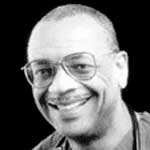-
- Federal raid on city council could affect gay vote
- Family Pride Coalition/Family Matters fundraiser exceeds expectations
- Human Dignity raises an estimated $95,000
- Community members gather for AIDS Candlelight Memorial
- Center Board to discuss, vote on background checks at May 27 meeting
- Community News
-
- Suspect arrested in killing of lesbian teen
- Slain soldier’s parents want to stall promotion of Army general
- Oregon students cancel blood drive to protest antigay policy
- Phony counseling service for transgender youth uncovered
- Episcopal seminary to award MCC founder honorary degree
- Delaware nondiscrimination bill resurfaces for second year
- Pensacola woman guilty of shooting lover at church
- Lutheran congregation installs lesbian pastor
- Exhibit celebrates anniversary of Pride flag
- Report says gay couples are more educated than married couples
- National News Briefs
- World News Briefs
commentary
Physicians unite against HIV
Published Thursday, 22-May-2003 in issue 804
POSITIVE OUTLOOK
“Each person living with HIV deserves the level of care I would give a family member,” said Dr. Robert Scott, co-founder of the AIDS Project of East Bay and the only private-practice physician in Alameda County specializing in HIV/AIDS.
Dr. Scott spoke candidly this month at the second annual Physicians United conference, sponsored by the Center for Social Support and Education (CSSE) and the UCSD AIDS Education & Training Center.
As a nonprofit, community-based organization, CSSE campaigns HIV outreach throughout San Diego, with a special focus on underserved communities. Physicians United is a program developed by the Center for Social Support and Education to keep physicians abreast of healthcare threats to minority communities.
The May 3 event, “Disparities and the Diagnosis and Treatment of HIV/AIDS,” addressed the ongoing need for improved healthcare for African-Americans, as doctors are often pivotal in HIV treatment and prevention education.
The HIV rate among African-Americans is higher than any other ethnic group. In 2001, African-Americans accounted for 12 percent of the U.S. population, but 50 percent of all new HIV cases in the United States, according to the Centers for Disease Control and Prevention.
Dr. Scott, who was a panelist at the 1999 National Conference on African- Americans and AIDS, says doctors need to be more open with patients.
“Patients won’t always disclose information about their sexual history to their doctors, because they want doctors to think highly of them. And they’re embarrassed,” said Scott.
“Trust is key in treating all patients,” he added. “To accomplish this, I educate my patients about the disease and treatment options so they may participate in the decision-making process. I use terminology that patients understand,” he said.
CDC studies show that a significant number of African-American men who have sex with men identify themselves as heterosexual. Dr. Scott also emphasized the impact African-Americans in the prison system have on the rise in HIV cases. According to the Justice Department, 791, 600 black males were incarcerated in June 2000, a new high. Nearly one in eight black males aged 20 to 34 was in prison on any given day.
Scott advocates for appropriate medical treatment of HIV infected persons among the inmate population.
“Some prisons actually segregate the gay inmates from the other prisoners. But gay inmates are not the only ones engaging in sex with other inmates,” said Scott.
CDC studies show that a significant number of African-American men who have sex with men identify themselves as heterosexual. Consequently, they seldom relate to HIV prevention messages targeting gay men.
Men who sleep with men but refuse to let their female partners know this fact pose one of the greatest challenges for HIV prevention workers in the African-American community. While the leading cause of HIV infection among African-American men is sexual contact with other men, the leading cause of HIV infection among African-American women is heterosexual contact, according to the CDC.
Another challenge in HIV prevention among African-Americans is poverty. Nearly one in four African-Americans lives in poverty, according to the U.S. Census Bureau. And although poverty is not a direct risk factor for HIV, CDC studies find socioeconomic problems associated with poverty, including limited access to quality health care, increase the risk of contracting the virus.
Scott continues to spearhead HIV complacency as it relates to African-Americans. “I am committed to treating not just the disease, but the person … my greatest challenge is to recruit others who share that same enthusiasm,” he said.
In light of the many stigmas HIV-infected individuals often face, CSSE programs are designed to be compassionate and nurturing to the whole person. Programs offered by CSSE include everything from emergency housing to women’s and men’s support groups, movie nights, literacy programs and barbeques. CSSE also provides free HIV testing, holds weekly HIV 101 classes and community choir rehearsals.
In addition, CSSE’s learning center offers free computer instruction and Internet access, and is open to the public.
|
|
Copyright © 2003-2025 Uptown Publications


